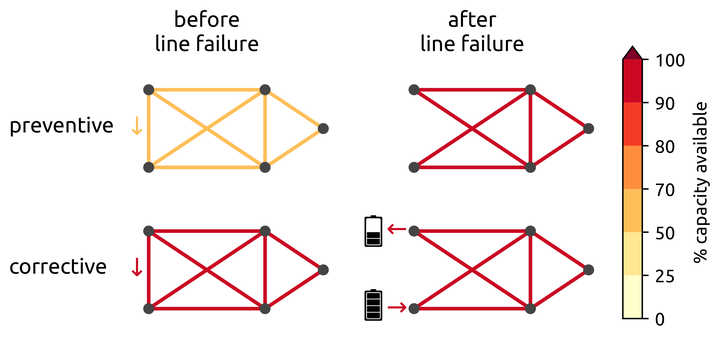Long-Term Benefits for Renewables Integration of Network Boosters for Corrective Grid Security

Using corrective actions to overcome network loading when single lines fail has the potential to free up network capacity that is otherwise underused in preventive N-1 security strategies. We investigate the impact on renewable integration of a corrective network security strategy, whereby storage or other flexibility assets are used to correct overloading that results from line outages. In a 50-bus model of the German power system utilizing these flexibility assets, so-called network boosters (NB), we find significant cost savings for the integration of renewable energy of up to 0.85 billion euros per year. While previous literature has focused on the potential savings in the short-term operation, we focus on the long-term benefits in systems with high shares of renewable energy sources, where the capacities and dispatch of generation and NB are optimised. We demonstrate the benefits of NB for various shares of renewable energy, NB and flexibility costs, as well as different allowed levels of temporary overloading the lines in both (i) a sequential model, where long-run generation investments are optimised separately from the NB capacities, and (ii) a simultaneous model, where generation is co-optimised with NB investment so that mixed preventive-corrective approaches are possible.